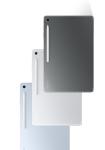The issue of mercury contamination led to soaring temperatures at the 74th annual general meeting of fast moving consumer goods major Hindustan Lever Limited.
While social activism peaked outside the venue, inside, shareholder activism gained momentum as shareholders took the FMCG major to task on issues ranging from the mercury pollution in the pristine environs of Kodaikanal in Tamilnadu to changing the name to Hindustan Unilever Limited.
HLL had set up a mercury thermometer production unit in the state in the 1980s, but the environmental impact has stirred up a controversy. HLL Chairman Harish Manwani denied these allegations, and said that the samples from the state have been sent to laboratories in the US and the company has come clean.
In his speech, which was in stark contrast to the protests outside the venue, Manwani highlighted the need for integrating corporate social responsibility with business. Quoting research by global research firm, Globe Scan across 23 countries, Manwani said that over 60 per cent of the consumers took social and environmental factors into account while choosing a brand.
The speech titled 'Brands at the forefront of social change' elaborated on Unilever implementing a new process called Brand Imprint -- that helps brands measure and identify the social, economic and environmental impact caused by brands.
"The brands then operate in a space that is truly a win-win. They have a positive impact on society while being good for the business. This sharply defined space is the source of sustainable competitive advantage," said Manwani.
"HLL and parent Unilever are evaluating on how to implement the process of earning carbon credits," Manwani told shareholders.
He said that HLL has introduced a voluntary restriction not to directly target children below six as evidence suggests that this age group finds it difficult to distinguish between TV programming and advertising especially in the foods category.
Commenting on the growth prospects of the company, Manwani took a dig at the competition as he said that 'our Rs 1,000-crore growth in 2006 itself was equal to the total annual turnover of many of our key competitors'.
He said that the company would continue to invest in advertising and promotions keeping in mind the nature of the competition, as long as the affect of ad spends trickle down to have a positive effect on operating margins.







 © 2025
© 2025